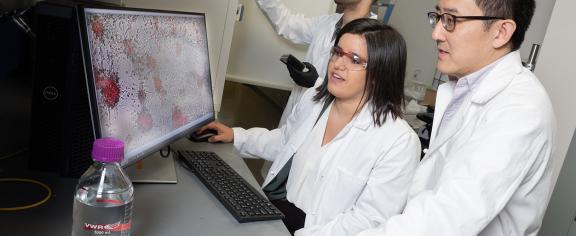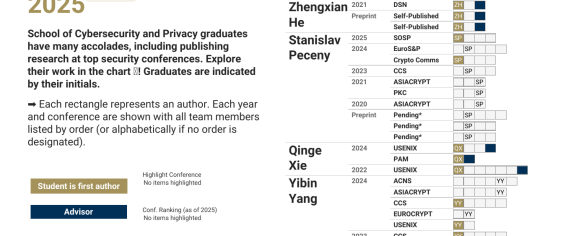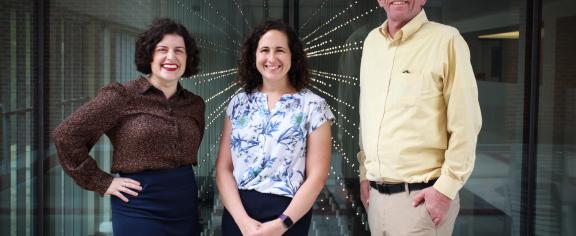2023-10-27
At Georgia Tech, at the crossroads of innovation and ethics, scientists and engineers are weighing in on a topic that has dominated headlines and internet searches of late: artificial intelligence.
2025-05-19
A BME team is putting a synthetic flag on tumors, then engineering a patient’s immune cells to find and eliminate cancer.
2025-05-16
By hitting the water in a “V” shape, then quickly extending their bodies underwater, the Māori have perfected the art of huge splashes.
2025-05-14
If you think you’re having an adverse drug reaction, it’s best to call a human medical professional, at least for the time being.
2025-05-14
Five Ph.D. students from Georgia Tech’s School of Cybersecurity and Privacy graduated in Spring 2025, contributing significant research in software security, cryptography, and privacy with 34 published papers.
2025-04-14
The device is the first of its kind to continuously monitor how the skin exchanges gases with the environment, helping to monitor skin health and wound healing.
2025-05-06
Every time you use your phone, open your computer or listen to your favorite music on AirPods, you are relying on critical minerals.
2025-04-30
AI-powered systems are not magical, nor are they foolproof – they can and do regularly fail to work as intended.
2025-05-08
The lack of centralized oversight has made crypto, including decentralized finance, a prime target for hackers and scammers.
2025-05-08
Students from all majors are invited to register for the new Minor in Astrobiology at Georgia Tech.








